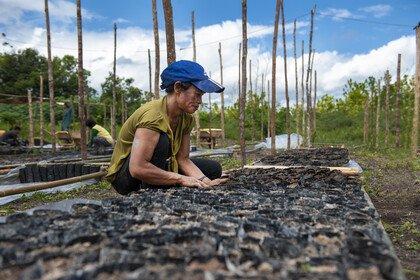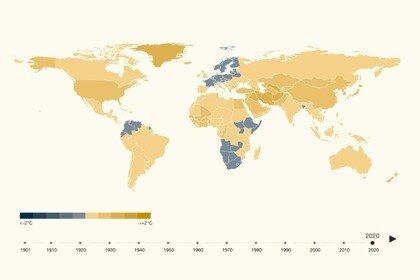Although actions to mitigate climate change are being implemented around the world, global greenhouse gas emissions are not falling at the scale and speed needed to limit future global temperature increases to 1.5°C.
It’s projected that current policies around the world will result in around 2.7°C warming above pre-industrial levels. But all sectors have options to at least halve greenhouse gas emissions by 2030.
The 2023 Lancet Pathfinder Commission report gives evidence that world leaders need to urgently scale up climate mitigation actions to avoid catastrophic climate breakdown. It’s also important they choose the healthiest and most equitable ways to mitigate climate change that are informed by the available scientific evidence.
At Wellcome, we’re funding research to predict and measure the health impacts of different climate change actions. Our funding call ‘Advancing climate mitigation policy solutions with health co-benefits in G7 countries’ is supporting applicants to generate evidence to help policymakers in G7 countries make changes to food systems, transport, energy and housing sectors that improve health.
The whole world can take part in climate mitigation. But richer countries like G7 members, which have high levels of historical emissions and large economies, need to lead the way on climate action. They also need to support lower-income countries, which are the most vulnerable to the impacts of climate change and ill-equipped to cut emissions, with the necessary funding.
We have the tools to respond to the climate crisis, and the sooner we do, the better our chances of protecting health and wellbeing.
This article was first published on 12 July 2022.





